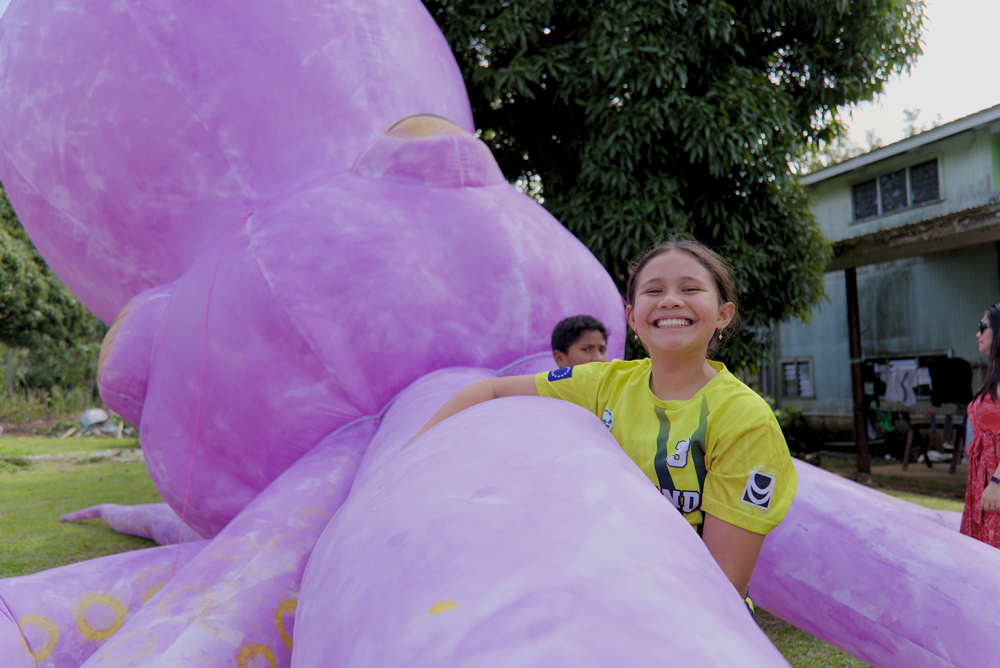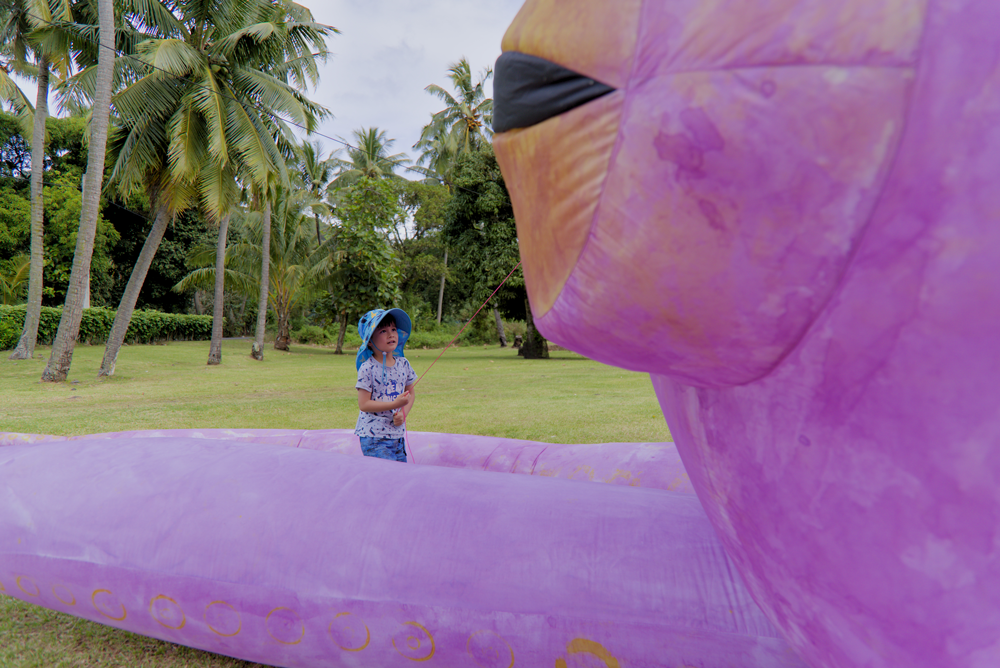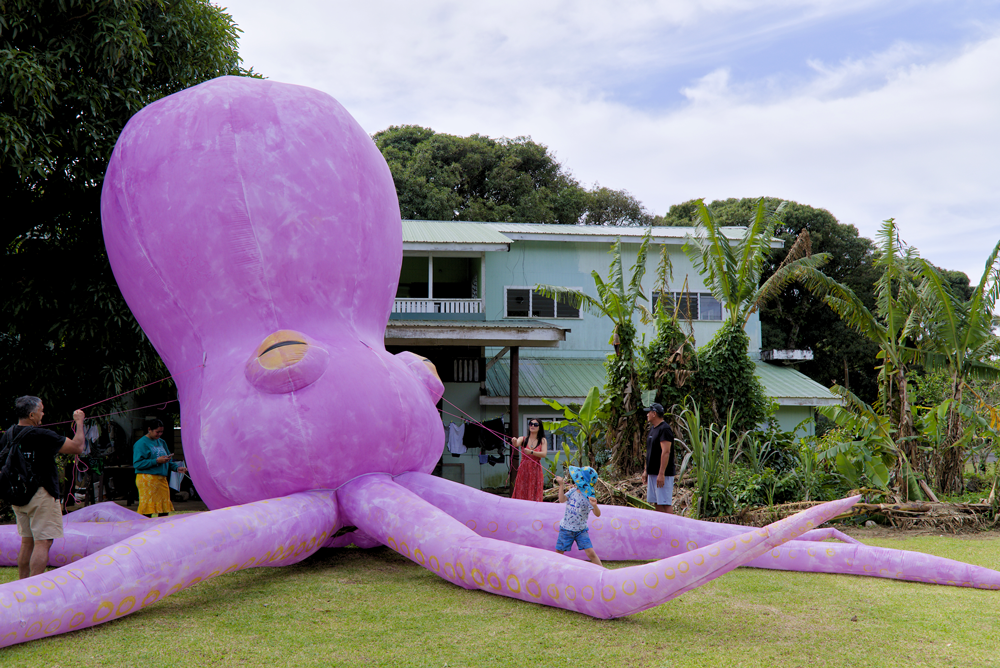Aere mai tātou on Saturday 19 July from 2pm at Aroʻa Beach (next to the Rarotongan Hotel) for a fun, family beach day organised by Ocean Ancestors—a collective of individuals, NGOs, and businesses united by a shared passion for protecting the ocean.
Free parking across the road, bring a picnic, dress up as a sea creature, enjoy music, even sing along, and be part of a global event calling for a moratorium on Deep Sea Mining (DSM). Be there before 4pm for a group photo and drone footage to share with participants worldwide.
And we are excited to have the well-travelled mascot, Tumu (aka Otto), one of several giant inflatable pink octopuses, for you to meet and, what a great photo opportunity!

But why an octopus? And a pink one – huh?
With its ability to change colour and texture, the octopus represents the vibrant and diverse life found in the deep sea. DSM is a very real threat which could have devastating consequences for the deep-sea environment, including the destruction of habitats and the potential extinction of species.
One genus under threat is the real-life octopus. There are over 300 known species of octopus and more being discovered through deep sea exploration. They're intelligent, use tools, play, can problem-solve, learn, and use spatial memory, and range in size from just over 1cm up to 10 metres across (about the size of Tumu), and their habitats go from the ocean’s surface down to the darkest depths.
The female usually cares for the eggs until they hatch-often she dies, and the babies are left to fend for themselves. In one species, Casper the ghost octopus (Tumu’s muse), it has been observed that they lay their eggs on the dead stalks of sponges that are anchored on manganese nodules, then shelter the eggs with their bodies until they hatch. As they are a deep-sea octopus it is probable that the gestation time is years rather than months, making them particularly vulnerable to DSM. Such slow developing life can quickly be wiped out for good, which is why Tumu is here as a bold reminder to defend the deep.
The Ghost octopus and sponges are just two examples of the incredible, often mysterious deep-sea creatures whose habitats face irreversible harm from DSM. Think of the Pacific Warty deep-sea octopus, diverse crustaceans, and countless microorganisms that feed larger creatures throughout the water column, ultimately sustaining our fish supply. If our tuna don't have a ready food source, they'll simply migrate, disrupting ecosystems and potentially impacting our access to food. Everything is interconnected in the vast web of ocean life.
Tumu's journey began in the Czech Republic in June 2023, where he joined DSM awareness campaigns across Prague (Czechia), Pisa (Italy), Kingston (Jamaica), Oslo (Norway), Paris (France), and Colombo (Sri Lanka). Tumu was even photographed in front of the Eiffel tower! He travelled to New Zealand for World Ocean’s Day and went to Sydney to draw attention to an Australian company trying to fast track approval to mine the South Taranaki Bight. In June 2023, the South Taranaki District Council called for a ban on seabed mining in New Zealand, declaring that any economic benefits would never outweigh the "environmental vandalism". Two years later, they stand firm, and other Councils have now joined their brave stance.

Pink octopuses like Tumu have become a global DSM protest symbol. Their presence underscores the worldwide nature of this insidious threat. One was even present as King Charles warned the British government that its leadership on ocean protection is in jeopardy because proposals to drill and mine pose serious threats to marine life as well as the climate.
This is an important global call to action, so we would love to see you on the 19 July. But if you can't join us, you can still be a part of the movement. Head to the beach on 19th or 20th July. Write a message in the sand, swim, walk, or paddle – whatever you enjoy. Then, take a selfie and post it with #DefendTheDeep.

